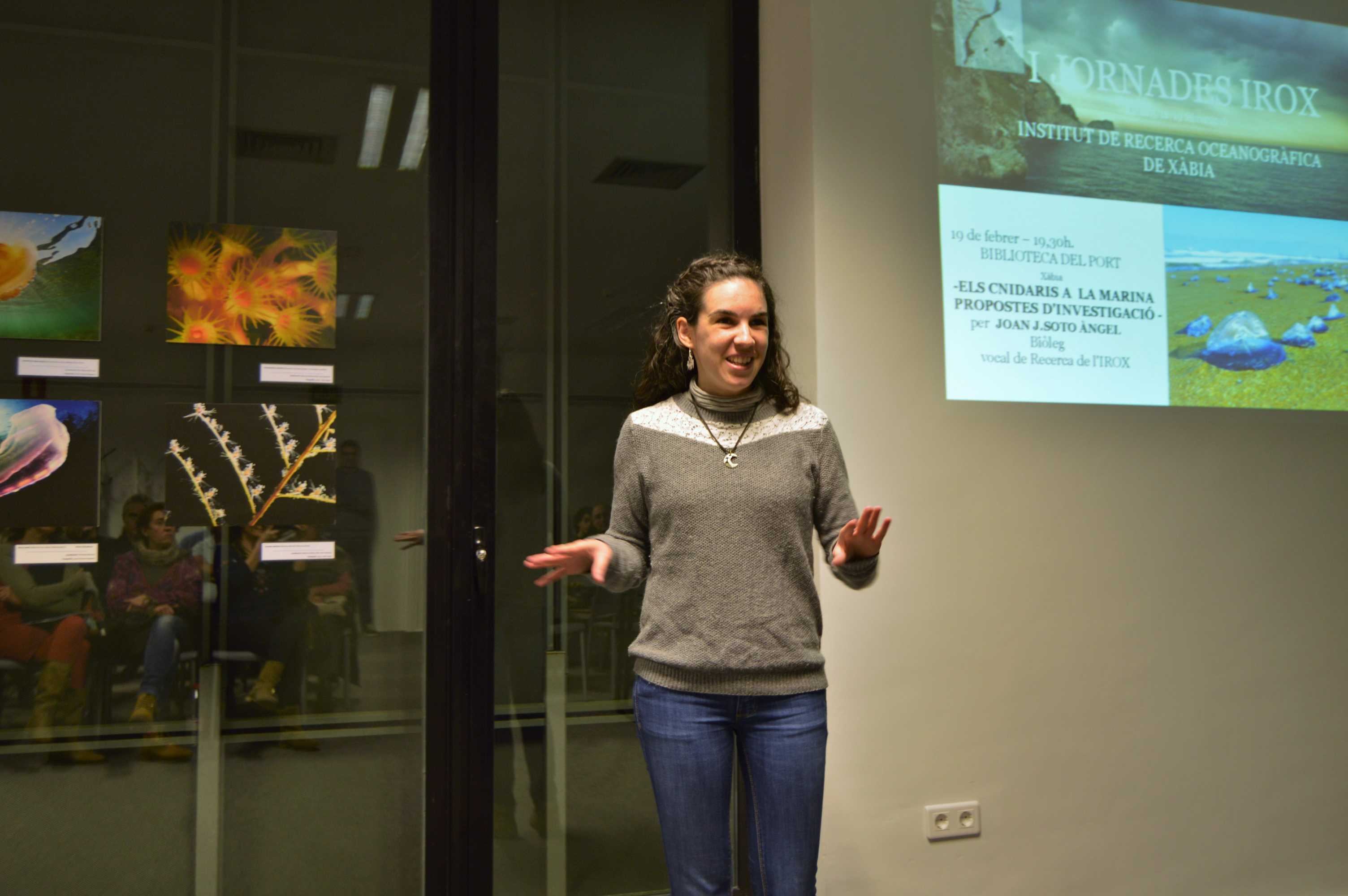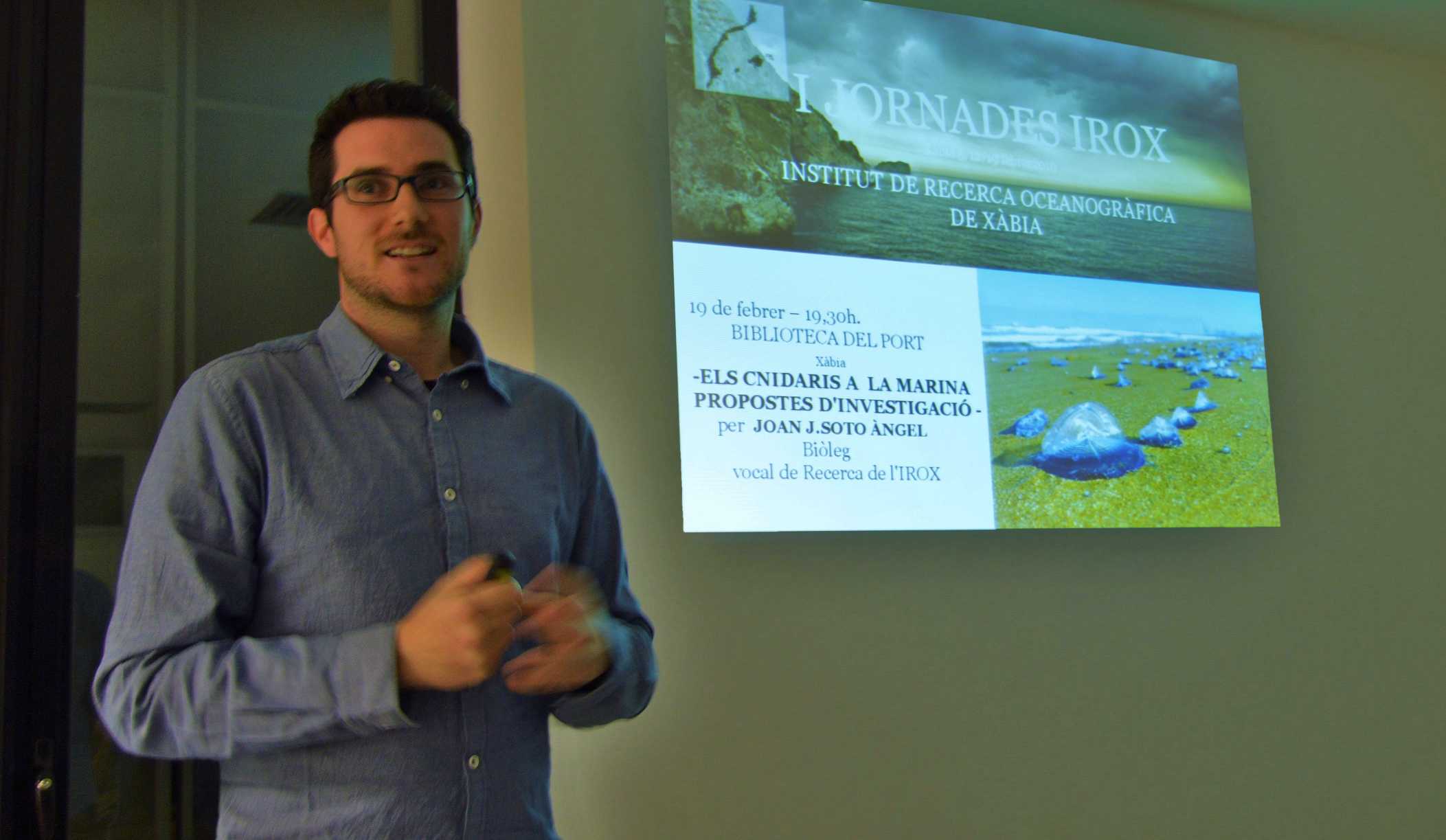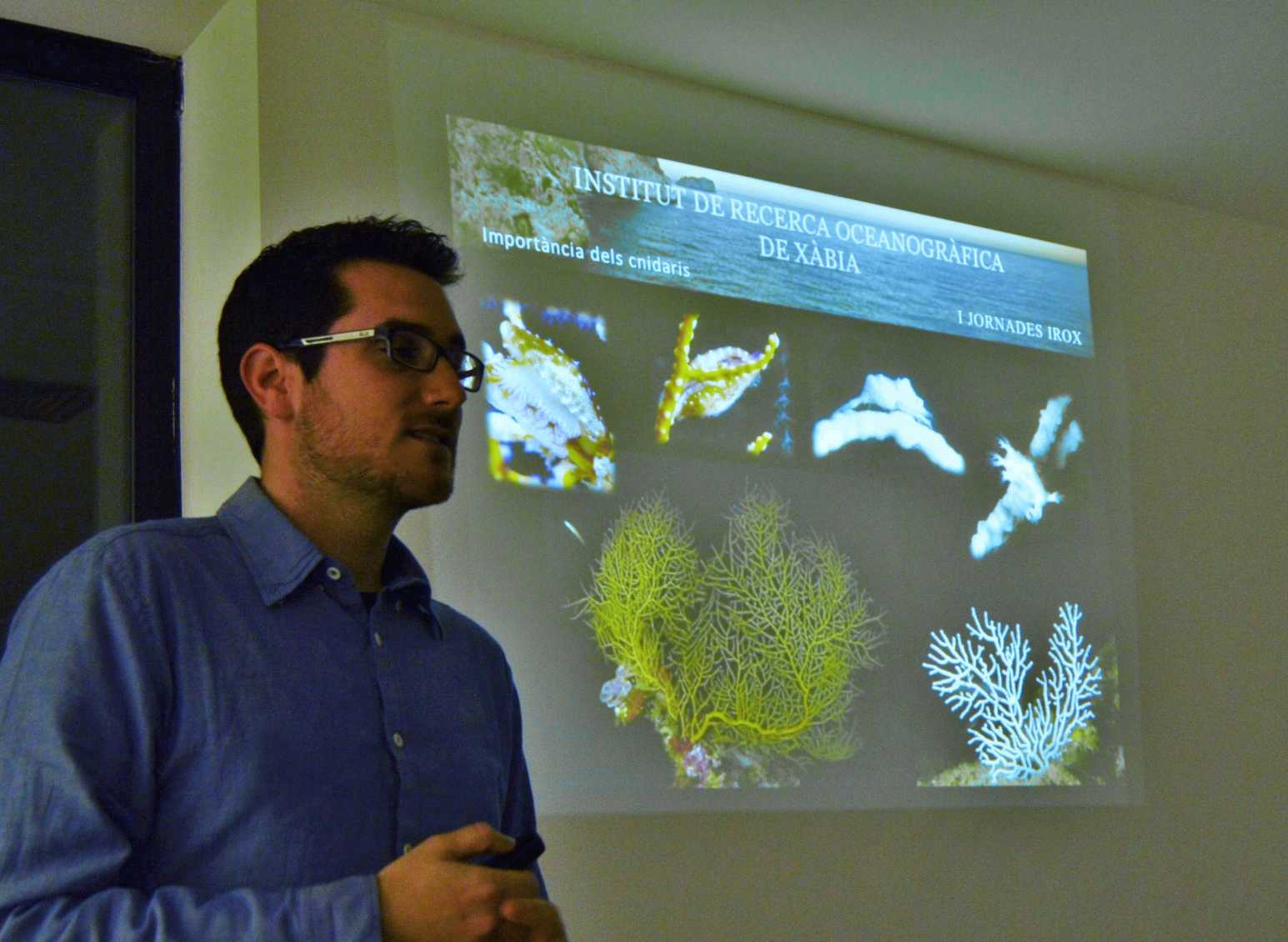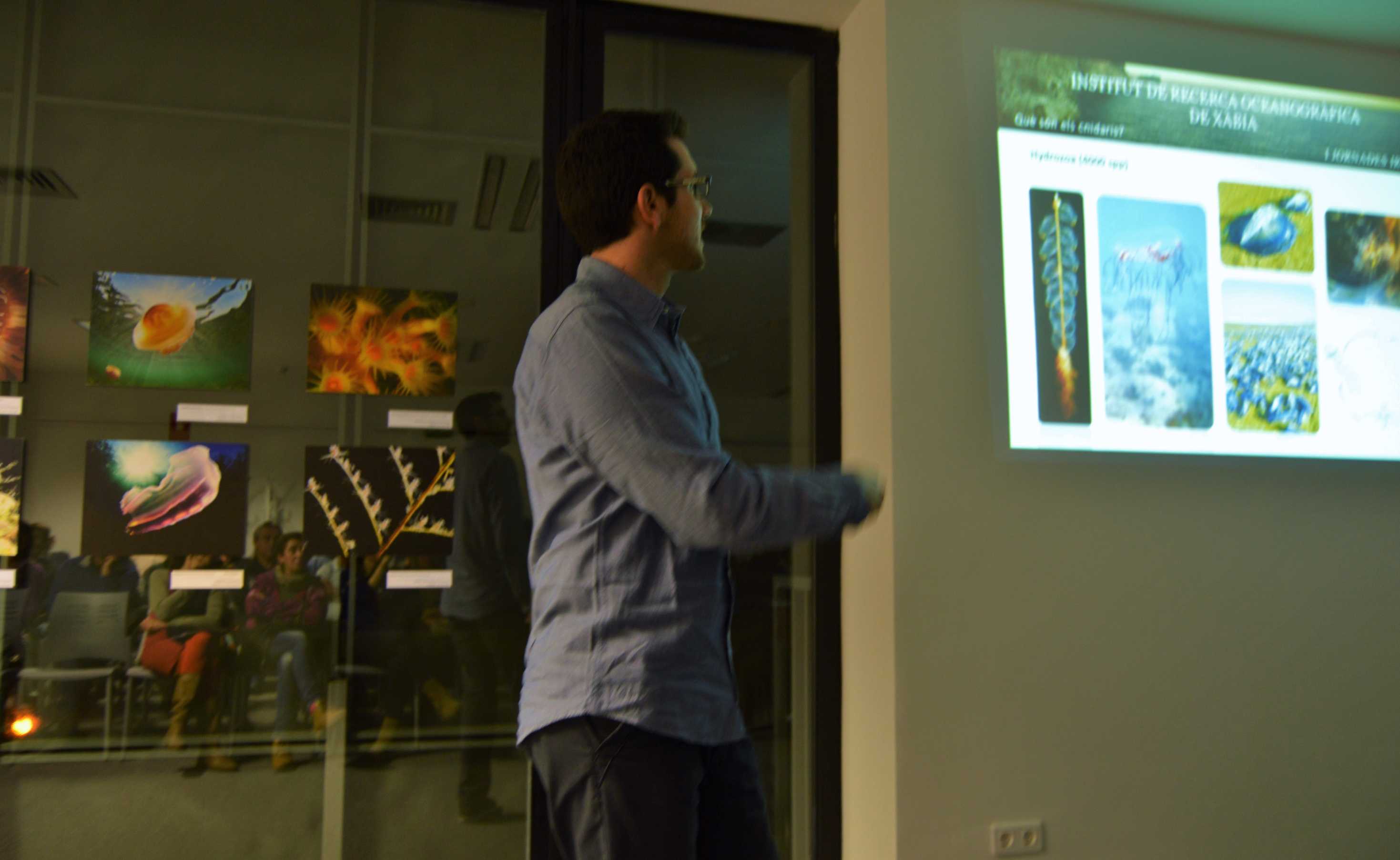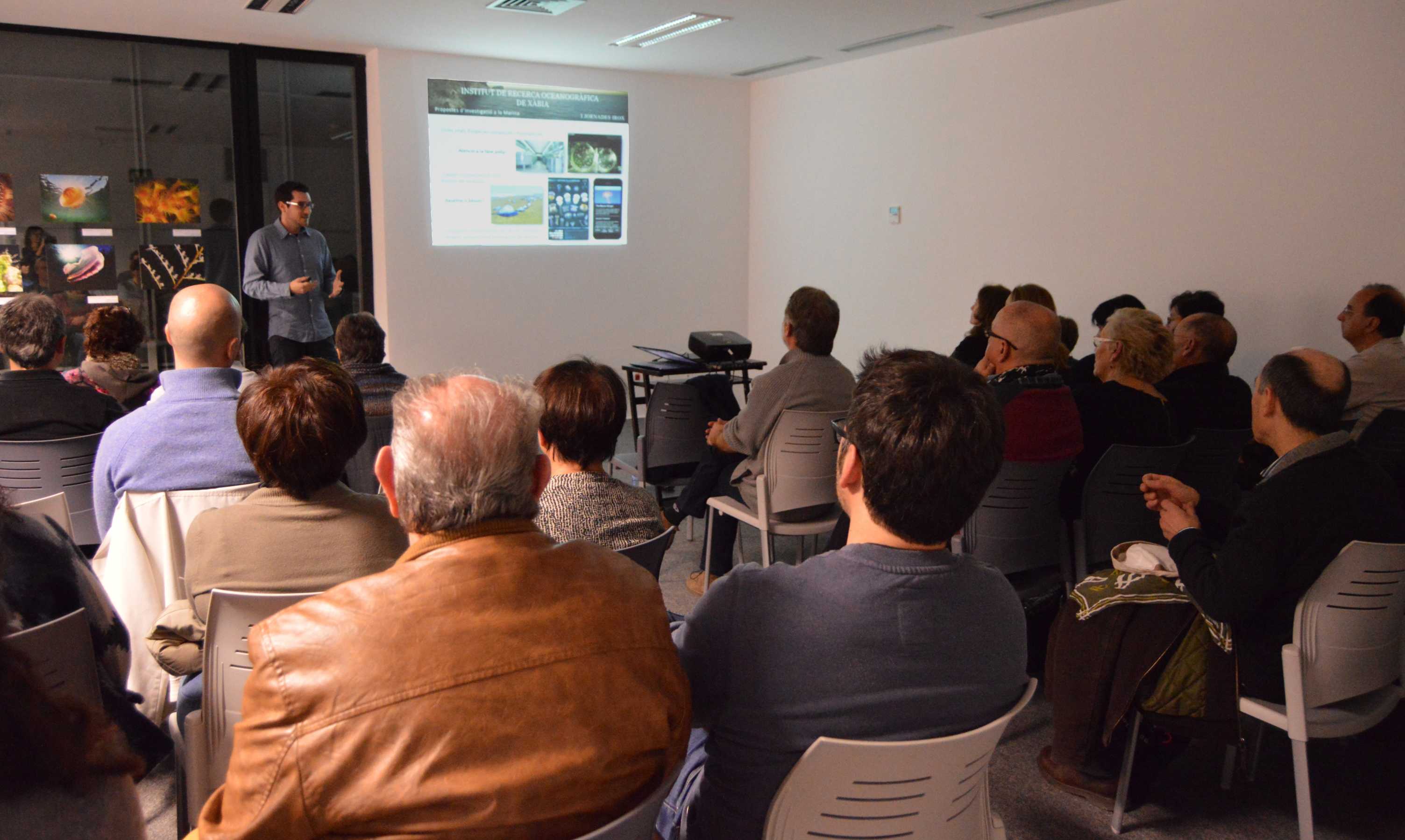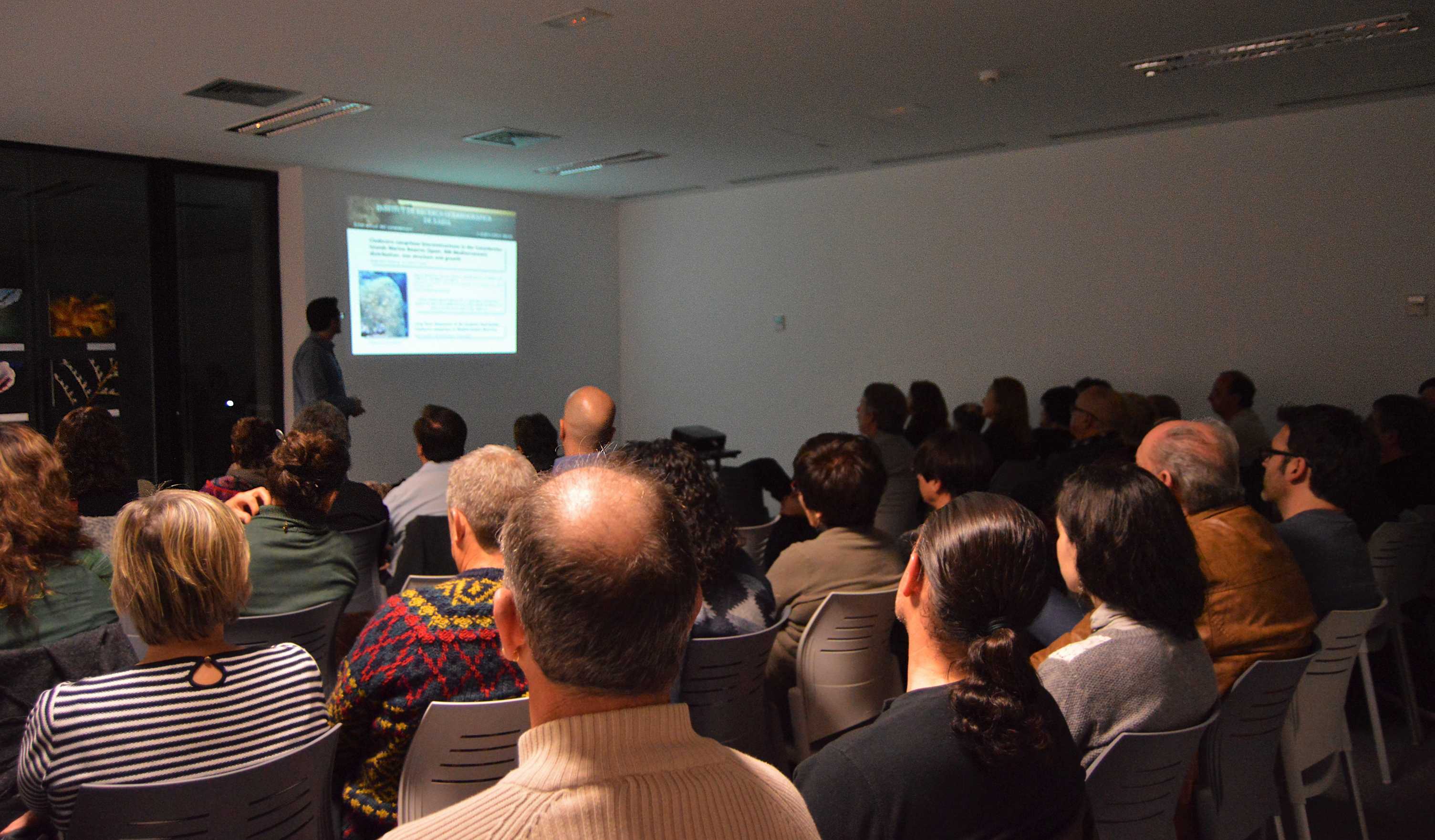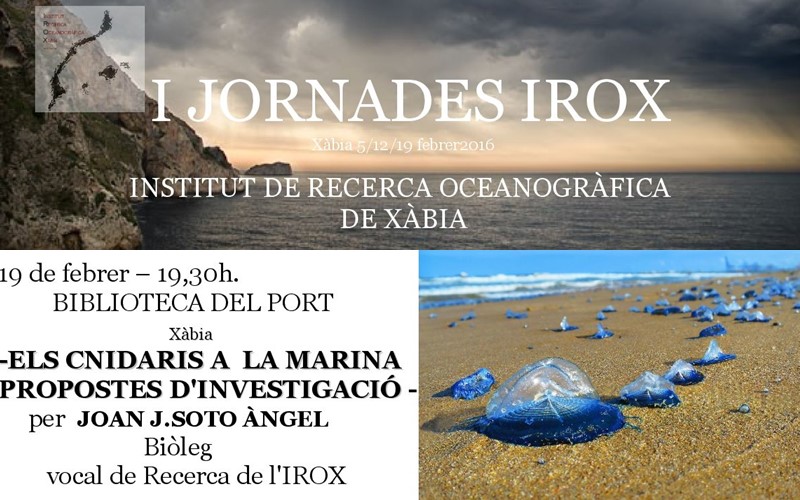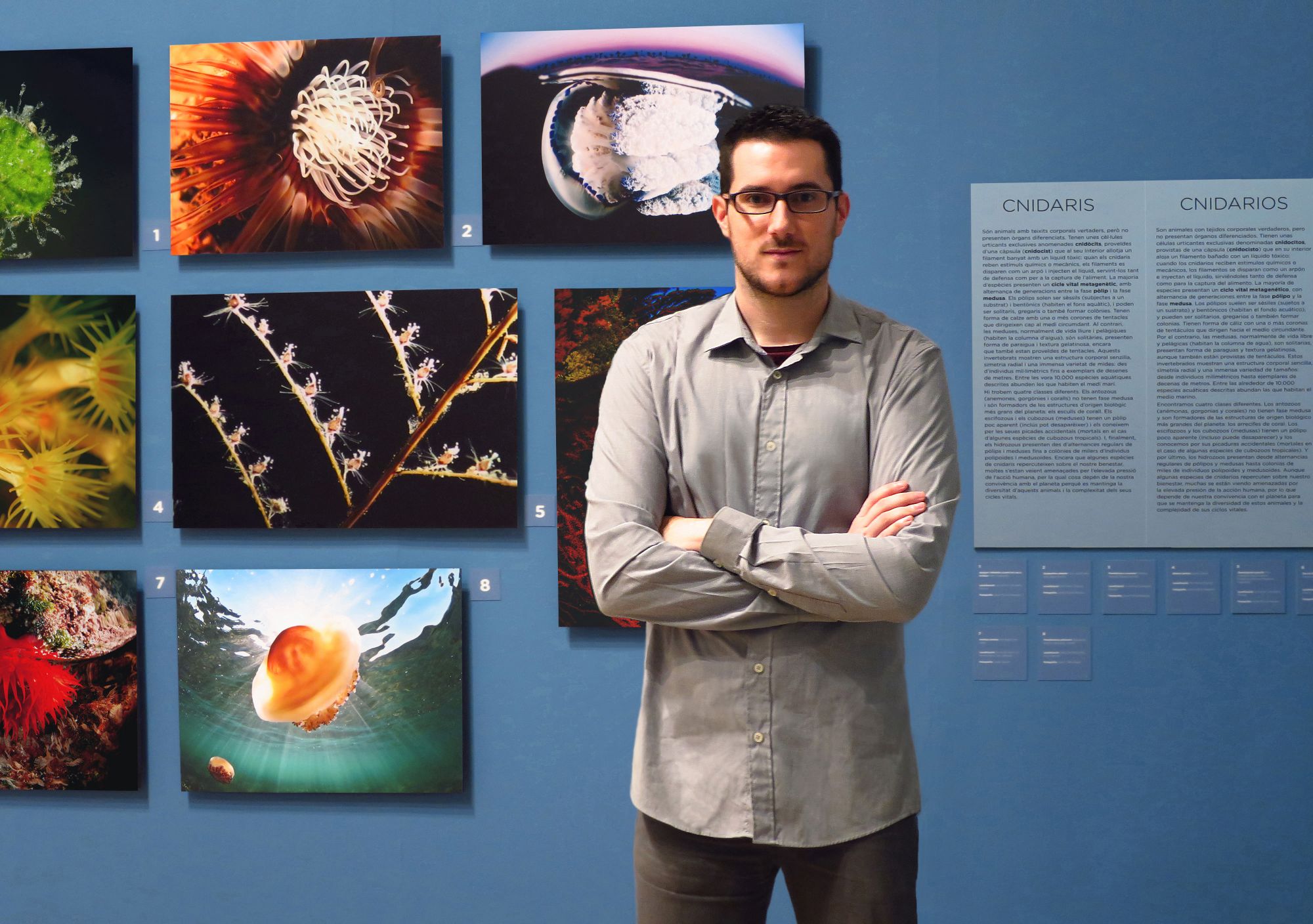On Friday 19 February, took place in the Library of the Xàbia’s harbour the conference:
“Cnidarians at La Marina – Research Proposals”
by biologist Joan J. Soto Àngel
First Laia Fontana, biologist and co-author with Joan Soto of the book “Els nostres veïns submarins” ( Our neighbors submarines) (part of which was shown during the conference), introduced the speaker noting that, despite his youth, is a biologist a wonderful scientific experience several seas of the world, embodied in numerous contributions to conferences and journals of international impact, as well as his intense activity in the areas of teaching and communication.
Joan did a review of the characteristics of different groups of cnidarians and distinguishing features of this animals group.
Then he explained the importance of ecological and economic peculiarities that make some excellent bio-indicators for measuring the conditions and the state of the marine environment where they are, contextualize it through a collection of current studies of these animals with an emphasis on the Balearic Sea.
Then proposed lines of action and research projects that you contribute will soon be an increase in both the biology of these animals, such as the functioning of marine ecosystems where they live.
Finally he indicated the need to assess the part of society the importance of these interesting animal species so abundant in our coasts, which comprise, in the words of the speaker, our natural heritage submerged.
The conference ended the cycle of conferences and a wonderful IROX attendance has put the bar very high to make them even better next year, especially for the extraordinary participation of all those who have passed on content of lectures, Amadeu Ros, Javier Guallart Encarna Rosello, Ximo Bolufer and Joan Soto.
Since IROX invite you to participate in all the activities developed throughout the year and will try to bring the sea and its scientific knowledge to everyone, especially the people of La Marina, a region that is not could not understand whithout it.
===============================================================================
Joan J, Soto Àngel born in Aldaia (Horta), València, 1986. Degree in Biology, with professional guidance in Marine Biology from the University of La Laguna; Masters in Marine Ecology from the University of the Illes Balears; Master in Biodiversity Conservation and Animal Evolution at the University of València. He worked as a Teaching and Research Department of Zoology, Faculty of Biological Sciences at the University of València. Experienced diver and amateur underwater photography. Founding member and president of the Association of Students Group Bioblau Marine Biology (2015), where he developed and taught numerous workshops, courses, seminars, field trips and lectures about marine biodiversity, its study and conservation. He has done courses methodological and technical (Madrid, Barcelona, Girona, Panama) and participated in many international conferences (Cadiz, Madrid, San Sebastian, Barcelona, Scotland, Lecce and Ischia) and is the author of several publications in journals impact, among which Marine Ecology: an evolutionary perspective and Polar Biology. Founding member and Secretary of the Institut de Recerca Oceanogràfica de Xàbia since 2015.
The biodiversity of cnidarians (jellyfish, corals, sea fans, anemones and hydrozoans) in the País Valencià is remarkably high. However, their study is limited and fractional leaving totally neglected groups and large solving ecological targets. During the presentation, we will explore the diversity of cnidarians our waters, are listed the research begun in the various institutions and propose new studies that demonstrate the scientific and ecological interest of this animals group, such as the impact of massive blooms of jellyfish; the potential of benthic hydrozoans as a biomarker of global change; and the conservation status of the populations in the marine reserves of gorgonians and coral Cladocora caespitosa the only escleractini endemic Mediterranean and classified as “endangered” by the IUCN.
